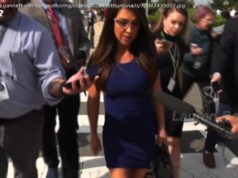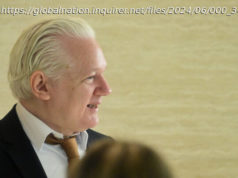Here we are again, balancing Louisiana’s budget on a temporary sales tax passed in 2016 and set to expire at the end of June.
In 1986, during Edwin Edwards’ third term as governor, the Louisiana Legislature passed what was supposed to be a temporary sales tax on food and utilities to fill a hole the Oil Bust knocked in the budget.
Those « temporary » taxes were anything but. Lawmakers renewed the taxes every two years through the administrations of Buddy Roemer, Edwin Edwards again and then Mike Foster. Those votes usually came after weeks of posturing over the budget. Finally, then-state Rep. Vic Stelly and Gov. Foster persuaded legislators and voters to do away with the temporary sales taxes and replace the revenue with income taxes in 2002.
It took 16 years to get rid of one of the most regressive taxes on the books.
Foolishly, during Bobby Jindal’s reign, the Legislature erased the last of the Stelly reforms to income taxes. Then when revenues tanked, they used up the surplus Kathleen Blanco had left them and emptied state trust funds to avoid raising taxes.
Now, here we are again, balancing Louisiana’s budget on a temporary sales tax passed in 2016 and set to expire at the end of June.
Everything about this situation is familiar. The governor has produced a doomsday budget that threatens to slash mental health services, eliminate a daycare program for medically fragile children, reduce the TOPS scholarship program by 80 percent, dramatically cut funding for sheriffs and prosecutors, and potentially close hospitals.
« It’s honest. It’s ugly, » Gov. John Bel Edwards told lawmakers. It’s ugly, for sure. But, honestly, no one really believes the $994 million cuts in his budget will come to pass.
The governor is trying to put pressure on the Legislature to confront the $1 billion budget gap looming when the temporary sales tax and other revenue measures expire. Any tax changes would have to be made in a special session. But he has yet to get House leaders, where revenue legislation has to start, to agree to anything.
House Speaker Taylor Barras sent Gov. Edwards a list of demands Tuesday (Jan. 30), including a cap on spending, additional budget information online and a work requirement for Medicaid recipients. If those steps are taken, the GOP-controlled House will consider revenue-raising measures, he said.
The governor outlined a plan in December for closing the budget deficit, including eliminating some sales tax exemptions for businesses and applying the 4-cent sales tax to more goods and services like cable subscriptions. The recent changes Congress made to income taxes will give the state an extra $200 million to $250 million per year, although it is unclear when that will come in.
Despite their demands for a smaller government, legislators aren’t going to make $1 billion in cuts. But they won’t say what they will do.
For some Republican legislators, especially in the House, the end game is to keep Gov. Edwards, a Democrat, from succeeding. They want to take the Governor’s Office back in 2019.
The stalemate is maddening. This ought to be a moment when our leaders make Louisiana’s tax system fairer and more stable. The Task Force on Structural Change in Budget and Tax Policy produced a good plan in November 2016 after months of study. The report recommended eliminating many tax credits and lowering rates, reducing sales taxes, restructuring or phasing out the corporate franchise tax and looking for ways to save on contracts.
The task force recommendations were revenue neutral, but the strategies could provide solutions to the looming budget cliff.
Our sales taxes were already too high when legislators added the penny that is set to expire at the end of June. They did that to help plug a $2 billion deficit the Edwards administration inherited from Bobby Jindal.
The plan, supposedly, was to follow up that temporary fix with a permanent solution. The Legislature appointed the task force to come up with a plan, and it did. But lawmakers balked at the changes, and the governor hasn’t really pushed them.
Now some reform advocates fear we’ll end up with more temporary fixes. That would be a terrible outcome. Temporary taxes create instability and ratchet up political gamesmanship.
Louisiana should have learned that in the 1990s.
Gov. Edwards ought to put all his energy behind tax and spending changes that will make Louisiana healthier long-term. And Mr. Barras and his colleagues should work with the governor in good faith.
It’s time for Louisiana to stop repeating its mistakes.






